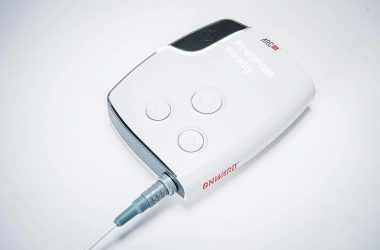Katalin Karikó and Drew Weissman have been awarded the Nobel prize in physiology or medicine
Niklas Elmehed/Nobel Prize Outreach
Two scientists, Katalin Karikó and Drew Weissman, have been awarded the 2023 Nobel Prize in Physiology or Medicine for their groundbreaking work on mRNA technology that led to the development of COVID-19 vaccines.
Karikó and Weissman’s research focused on chemically modifying strands of mRNA, making it possible to utilize them in vaccines. This technology was licensed by US biotech company Moderna and German biotech company BioNTech. Karikó joined BioNTech, which then collaborated with the multinational pharmaceutical company Pfizer. The collaborative efforts resulted in the development of two prominent COVID-19 vaccines used in high-income countries – the Moderna vaccine and the Pfizer/BioNTech vaccine.
mRNA, or messenger RNA, is a molecule that carries genetic information from DNA in the nucleus of a cell to the ribosomes, where proteins are produced. Previously, there had been interest in using mRNA for medical purposes, particularly in instructing human cells to manufacture specific proteins. However, artificially synthesized mRNA faced an immune attack due to its resemblance to mRNA produced by bacteria.
During their time at the University of Pennsylvania in the 1990s, Karikó and Weissman discovered a method for chemically modifying synthesized mRNA to resemble the naturally occurring version produced by mammalian cells. This modification enabled the mRNA to evade immune attack.
In the COVID-19 vaccines, the mRNA carries instructions for producing the spike protein found on the surface of the coronavirus. When the vaccine is administered, the spike protein is synthesized by the recipient’s cells, triggering an immune response.
The Moderna and Pfizer/BioNTech vaccines were widely distributed in high-income countries starting from early 2021 and initially showed high efficacy in preventing COVID-19 infections. However, their effectiveness against the omicron variant, which emerged in late 2021, is lower. Nevertheless, the vaccines continue to provide protection against severe illness and reduce the risk of death.
Many countries in the northern hemisphere have recently initiated COVID-19 booster campaigns ahead of an anticipated winter surge of the virus. There is ongoing debate about whether boosters should be offered to the general population or limited to those who are more vulnerable.
Thomas Perlmann, the secretary of the Nobel Committee for Physiology or Medicine, highlighted the significant impact of mRNA COVID-19 vaccines in preventing deaths and enabling societies to reopen. The mRNA technology also offers advantages in the rapid development of vaccines against new viruses, such as a potential bird flu pandemic. Additionally, it is being explored as a potential treatment for cancer.
Topics:












